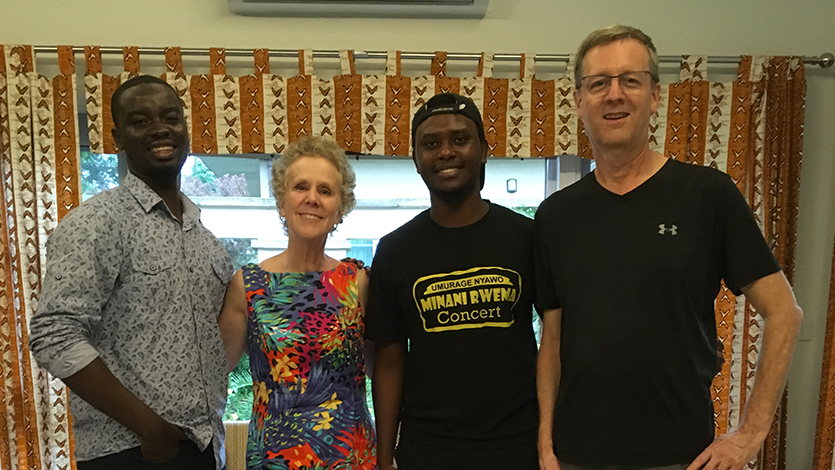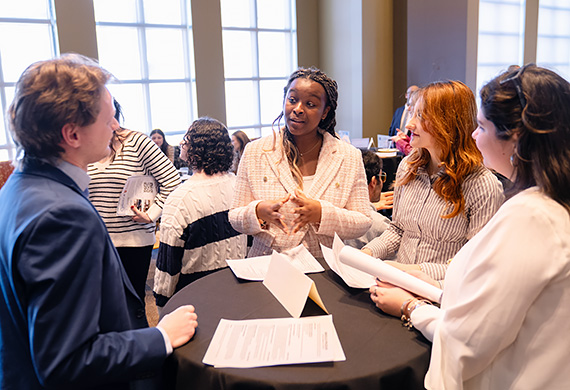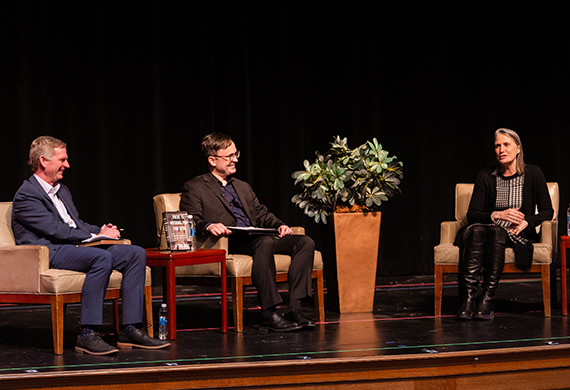Advancing the Social Good in Ghana
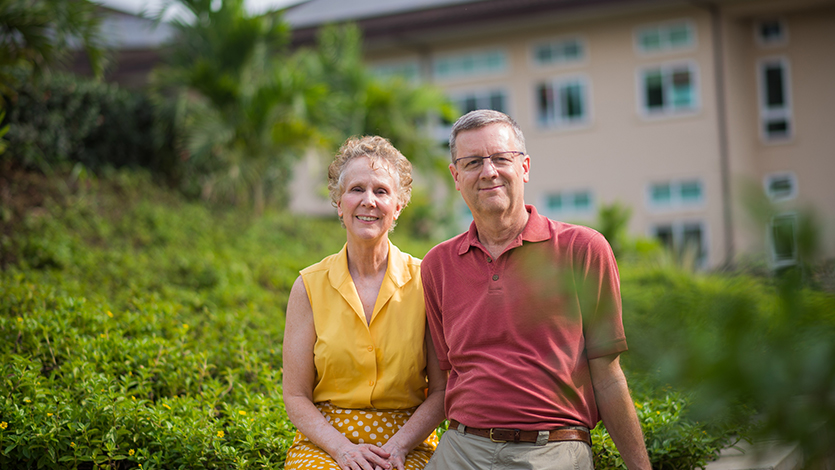
June 27, 2019—Judith Stoddard, Director of Institutional Research and Planning at Marist, has always had an interest in international affairs. In fact, the dissertation for her PhD in Global Affairs researched the effectiveness of 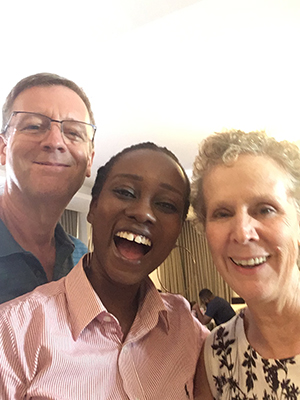
The Stoddards first became aware of Ashesi through a TED talk delivered by its founder, Patrick Awuah. Awuah grew up in Ghana and moved to the United States to attend Swarthmore College and pursue a career at Microsoft. Later, he planned to return to his home country to start an information technology company, but witnessed firsthand how poor governance and the lack of local expertise were impediments to his business. Awuah then adopted a new a goal: to attend the Haas School of Business at UC, Berkeley to develop a business plan to start a university. His reasoning was straightforward. To have the biggest positive impact on Ghana as well as the continent of Africa as a whole, Awuah wanted to create an institution of higher learning that would develop a generation of ethical, entrepreneurial leaders whose critical thinking and imagination could transform the continent.
Ashesi University opened its doors in 2001, and its first class graduated in 2005. Starting with a liberal arts curriculum with majors in computer science, MIS, and business, the university later added an engineering program. Located about an hour north of the capital Accra, the university attracts students from all over Africa and has seen its graduates go on to institutions such as Stanford and Oxford Universities. At about $8,000 a year, its tuition is high by African standards, but not all of the students come from wealthy families. Roughly half of the Ashesi student body receives some type of support from a variety of foundations. The MasterCard Foundation, for example, is a generous supporter of the students there. As a savvy entrepreneur, Awuah has made it a point to publicize Ashesi and organize donor trips to Ghana so supporters can witness its work firsthand.
In 2015, the Stoddards went on one of these trips and had the opportunity to meet Awuah, visit campus, and interact with Ashesi faculty, students, and alumni. According to Judith, “We saw that Ashesi is doing amazing things, so we reached out to the university and offered our help on an extended basis.” With Paul taking an early retirement from his career at AT&T and Judith’s request for a semester-long leave of absence approved, the timing was right to step away and use their talents in another part of the world. Arriving in Ghana in January 2019, Judith worked closely with Ashesi’s new provost to develop and analyze surveys for a 360-degree assessment of the school. She also assisted in the development of strategic materials to apply for grant funding. For his part, Paul was an active member of the 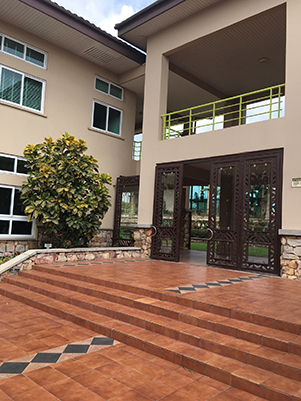
Now back to work in Marist’s Office of Institutional Research and Planning, Judith has had some time to look back fondly on her service experience in Ghana. She notes how “warm and friendly” people are there, with students even taking out their earbuds to say hello to passersby. She adds, “The student body is so multinational, each group with their own language, culture, and food. And the university’s grounds were so beautiful, just like a botanical garden, but instead of squirrels, lizards are ubiquitous!” Thanks to communication tools such as WhatsApp, the Stoddards are able to stay connected with their friends from Ashesi and look forward to a return visit at some point in the future.
Most importantly, says Judith, was the positive impact they had. “I really felt that we made a difference. Ashesi’s provost had lots of ideas, but she didn’t have the bandwidth to implement them all. That’s where I was able to help.” And thanks to the excellent work being done there, the university is becoming a model for other nascent African universities to follow – there’s a university with a similar mission opening in Niger – and it has begun hosting summer programs to facilitate collaboration with faculty and administrators from across the continent.
One of the three tenets of Marist’s 2018-23 Strategic Plan is “Advancing the Social Good,” a value that echoes the founding Marist Brothers’ commitment to service. Judith Stoddard has given us all a blueprint for how this ideal of service can be taken to the global level, impacting lives many thousands of miles away.
